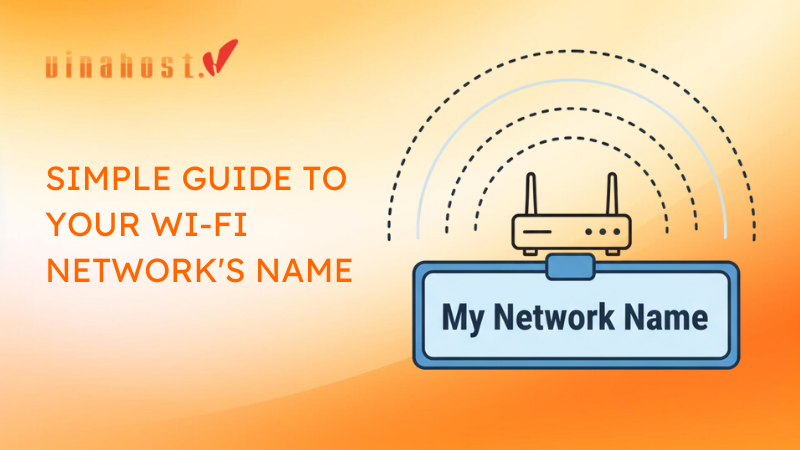What is .eu domain? The .eu domain name – the digital symbol of the European Union, is a popular choice for individuals and businesses who want to assert their position in the European market. With high security features and clear legality, the .eu domain name not only helps build prestige but also opens up development opportunities in this potential region.
1. What is .EU domain?
The .eu domain is the top-level domain for the European Union.
Launched in 2005, it allows individuals, businesses, and organizations in European Union countries to register and use it. It is a way to demonstrate a connection to Europe and increase the presence of a brand or organization in this market.
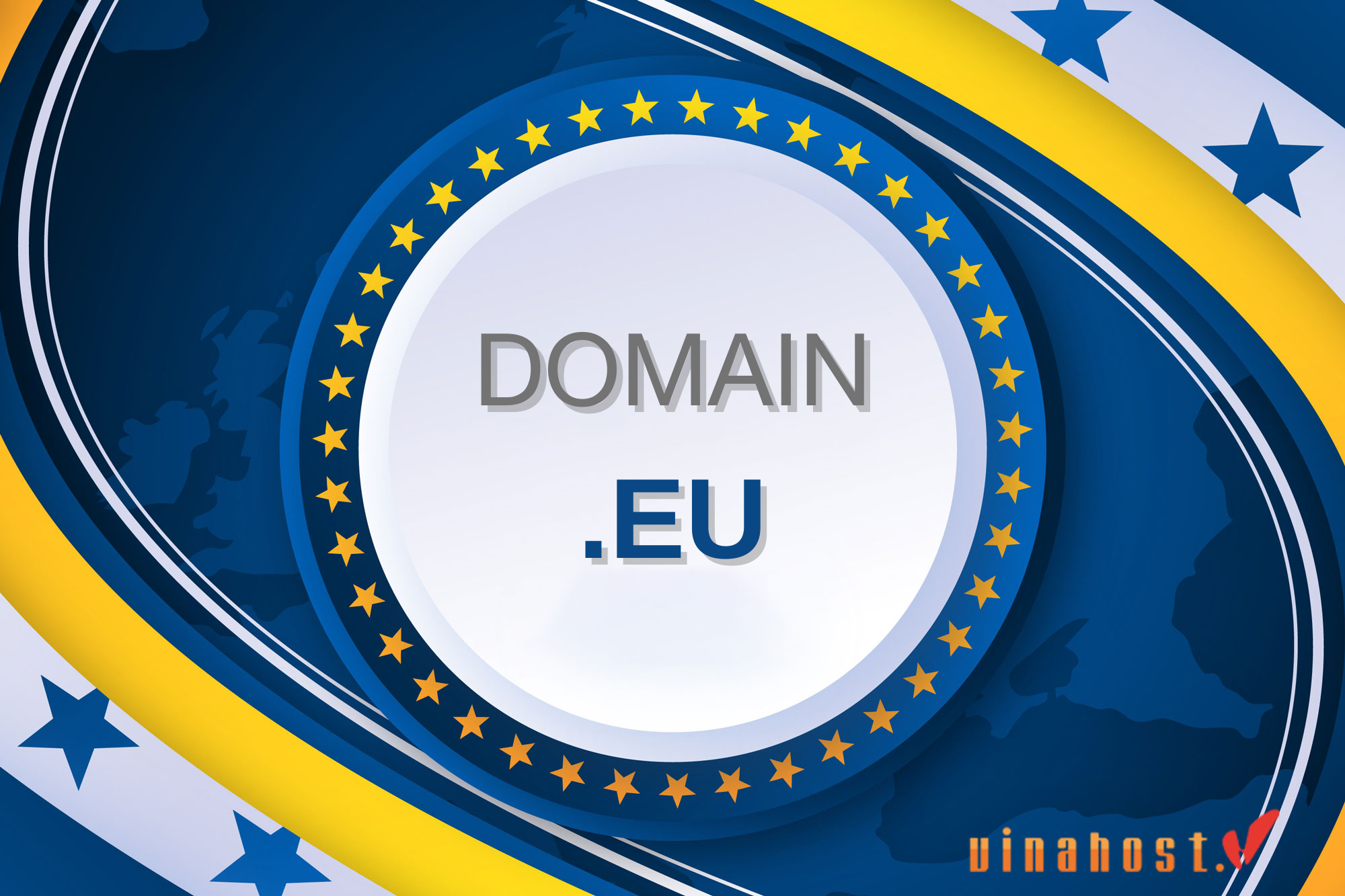
Also Read: What is Domain & How It Impacts Your Online Presence
2. A Brief History of .eu Domains
Here are some important milestones in the history of the .eu domain:
Before 2000
The idea of a common domain name for all EU member states emerged in the late 1990s. European legislators and regulators saw the need for a common cyberspace that represented the entire EU.
2005-2006
In 2005, the .eu domain name was officially launched, with priority given to registered trademarks, public organizations, and government agencies. In 2006, the .eu domain name was opened to the public, allowing any individual, company, or organization in the EU to register.
After its launch, the .eu domain name quickly attracted attention and was widely used by businesses and organizations that wanted to show their connection to the EU. The domain has grown rapidly with millions of registrations, making it one of the most popular domains in Europe.
After Brexit
The .eu domain has undergone changes to comply with EU regulations, including the withdrawal of domain names from individuals and organizations in the UK. The .eu domain continues to grow and has become a symbol of the unity and diversity of the EU member states. The .eu domain authority is also looking to expand its services and improve its technology to meet the needs of users in the digital age.
Read More: The Value of Domain Names: Choosing the Right Domain for Your Website
3. Advantages and disadvantages of the .EU domain name
3.1. Advantages
Creating a European brand: .eu domain names help individuals, businesses and organizations clearly demonstrate their connection to the European Union. This can create trust and confidence with consumers and business partners in Europe.
3.2. Disadvantages
Complicated legalities after Brexit: After the UK leaves the EU (Brexit), individuals and organizations in the UK are no longer eligible to hold .eu domain names, leading to a loss of ownership and affecting UK businesses using this domain name.
4. Why Choose a .EU Domain?
Choosing a .EU domain name has many benefits, especially if you want to reach the European market. Here are some reasons to consider it:
- European Identity: A .EU domain name immediately shows that your website is European, giving your brand a clear presence in the region, making it easier to build trust and attract European customers.
- Expand your market: If your business operates in multiple countries within the EU, a .EU domain name provides a unified online identity. Instead of having to register multiple country-specific domains (like .US for American .FR for France or .DE for Germany), a single .EU domain name is enough for the entire region.
- High Security: .EU domains comply with the strict data protection regulations of the GDPR, providing better protection for your user information and your domain name according to European standards.
- High Availability: .EU domains are less commonly used than popular domains such as .COM or .NET, so you will have a higher chance of registering the domain name you want.
- Increased Credibility: .EU domains create a sense of prestige, especially for businesses and organizations that want to affirm their trustworthiness and presence in Europe.
If you want to develop in the European market or affirm the European identity of your brand, the .EU domain name is a very reasonable choice.
After expiration, the .eu domain name will go through the following life cycle:
- Renewal Grace Period: 28 days. Customers must renew within this period to continue using the domain name.
- Redemption Grace Period: 40 days. During this period, customers can still renew the domain name but must pay a higher fee, including the renewal fee and the domain name recovery fee
After approximately 68 days from the expiration date, the .eu domain name will return to free status and can be registered by anyone.
Read More: What is Domain Backorder? | Everything you need to know
5. What is .EU domain used for?
.EU domain names are commonly used by individuals, businesses and organizations related to the European Union. Here are some common uses:
- European businesses: Companies operating in multiple EU countries often choose .EU domain names to demonstrate their presence in Europe. This domain name makes it easy for businesses to reach customers across the region without having to register multiple domain names for each country.
- International businesses targeting Europe: Global companies looking to expand into the European market often choose .EU domain names to build trust with customers in the EU, demonstrating their commitment to the market.
- European Union organizations: Many EU organizations, agencies and NGOs use .EU domain names to demonstrate their activities in the region, highlighting their involvement with European issues and laws.
- Individuals and startups in Europe: Freelancers, individuals or startups in the EU can use .EU domain names to increase their regional visibility and attract European customers.
.EU domain names help to demonstrate a European connection and focus, suitable for those with ties or activities in the region.
To register a .EU domain name, the registrant must be a citizen or organization residing in one of the European Union (EU) countries or in the territories of the following countries: Iceland, Liechtenstein or Norway. The most important condition to meet the above requirements is that the individual/organization registering must provide legal contact information (address and verified contact phone number) in the European Union (EU) or the 03 countries mentioned above.
Also Read: What is Whois? | Everything You Need To Know Whois
6. How to Register a .EU Domain
To register a domain via VinaHost’s online platform, follow these straightforward steps:
6.1. Step 1: Search for Your Domain Name
Navigate to the vietnam domain registration section and enter the domain name you wish to register. Click Search to check its availability. If the domain is available, select Register to add it to your cart. You can also register several domain names at the same time for added convenience.
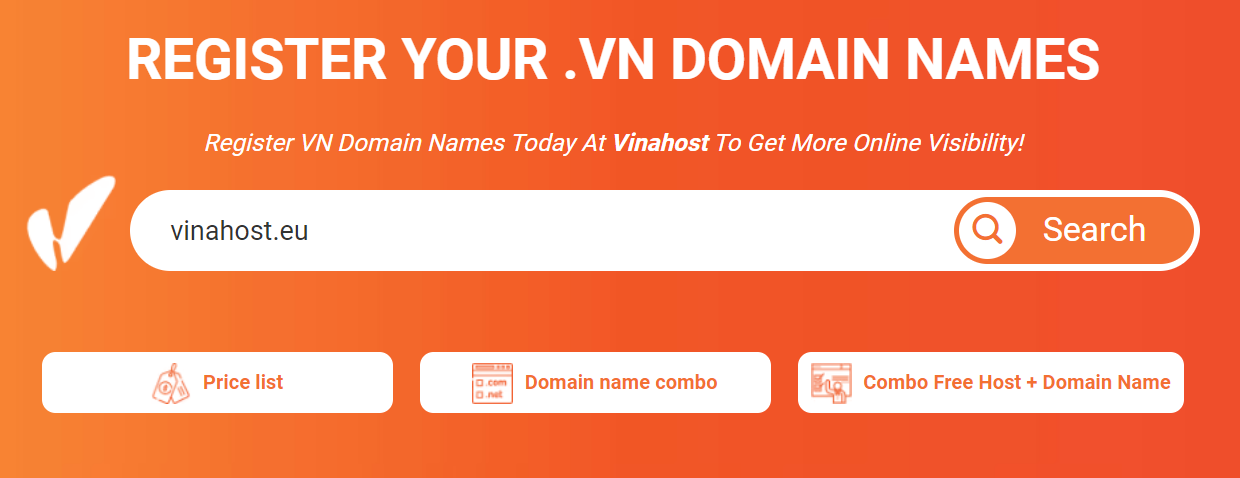
6.2. Step 2: Provide Personal Information
For Individual Registrants
Choose “Personal” as your registration type and provide the following details:
- Full Name
- Identification number (e.g., ID card, Citizen ID, or Passport)
- Gender
- Date of Birth
- Complete Address (including country, state/province, city, district, neighborhood, and street address)
- Email Address
- Phone Number
If registering multiple domains under the same individual, fill in the information for the first domain and select “Same as previous” to quickly apply the details to the others.
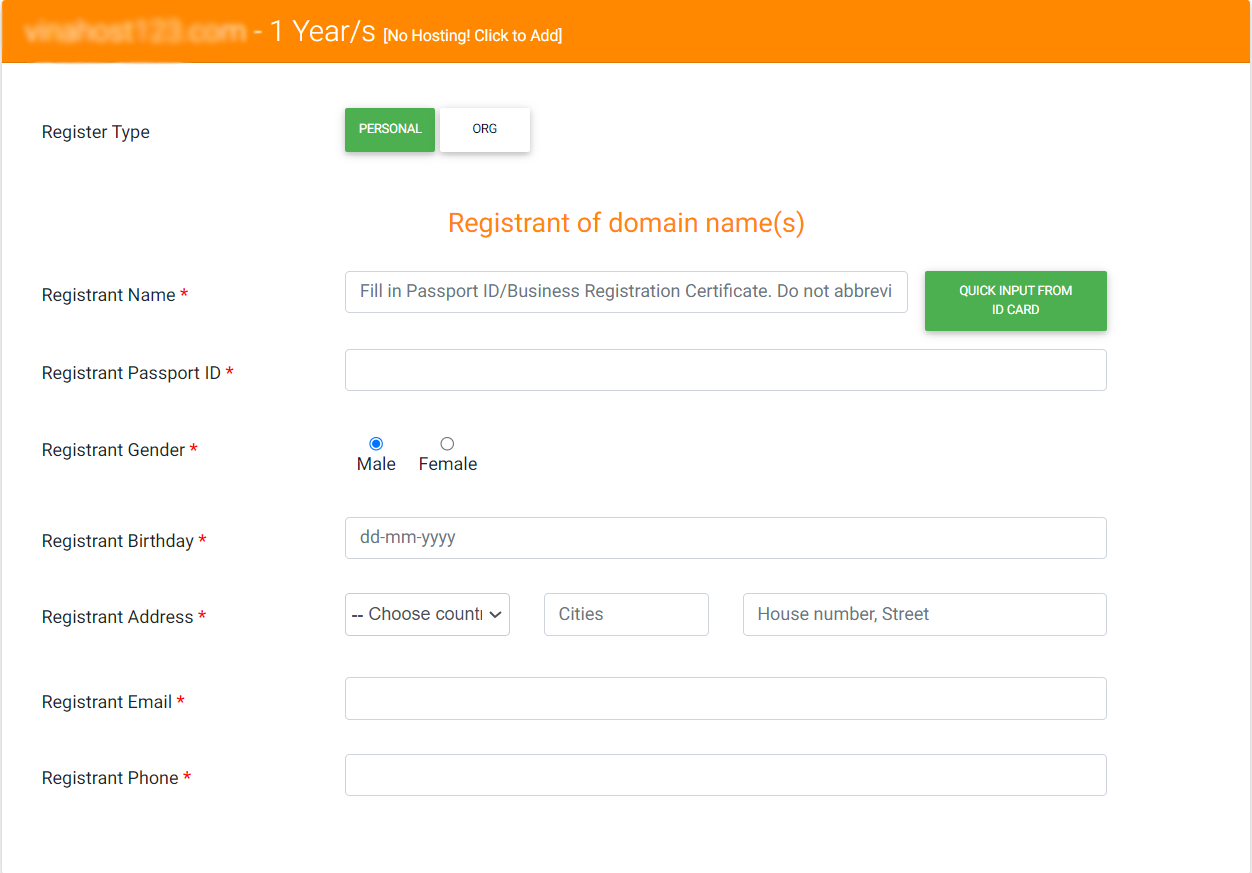
For Organizations
Select “Organization” as the registration type and provide the following details:
- Representative’s identification (ID card, Citizen ID, or Passport)
- Gender
- Date of Birth
- Contact Number
- Email Address
Once both the organization and domain information are entered, the system will automatically fill in the Domain Manager and Representative’s details, which you can edit if necessary.
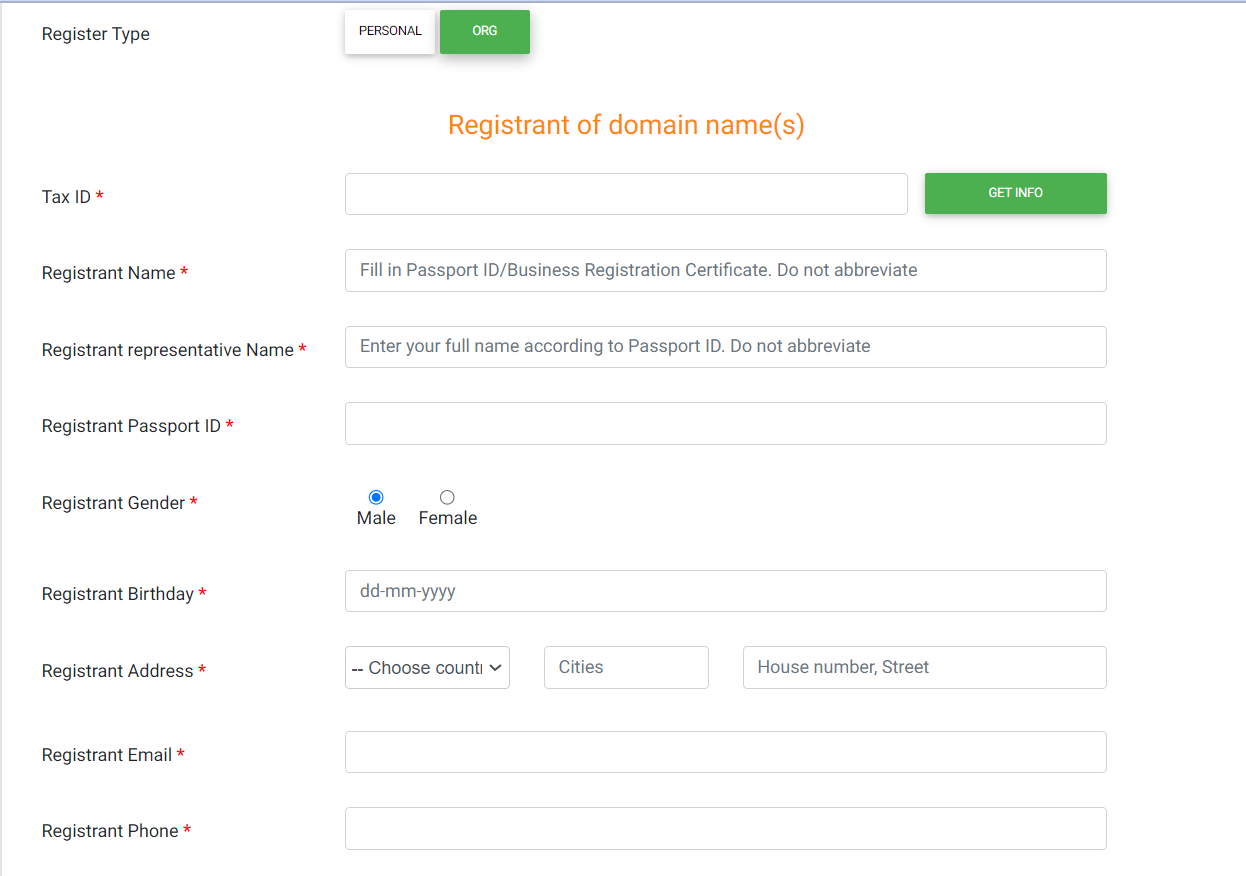
6.3. Step 3: Complete the Purchase
Review your order details, apply any available discount codes, and proceed.
If you’re new to VinaHost, create an account by entering your Name, Email address, Phone number, Address, Password, and a security question for added security. Include the necessary billing information.
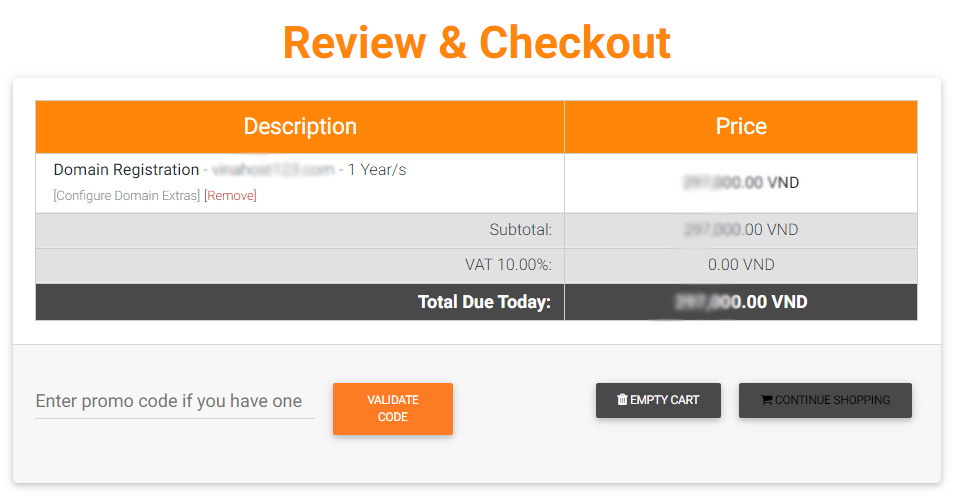
Select your preferred online payment method. If you’d rather pay in person, visit the VinaHost office at Cuu Long Apartment, 351/31 No Trang Long, Ward 13, Binh Thanh District, Ho Chi Minh City (Entrance through Gate B on Pham Van Dong street).
6.4. Step 4: Finalize Entity Verification for Domain Activation
To activate your domain name, visit VinaHost’s service management page at: https://secure.vinahost.vn/ac/clientarea.php?language=english. In the main menu, select the “Verify Domain Owner” option. You will find a list of domain profiles in the Entity Verification section that require updates.
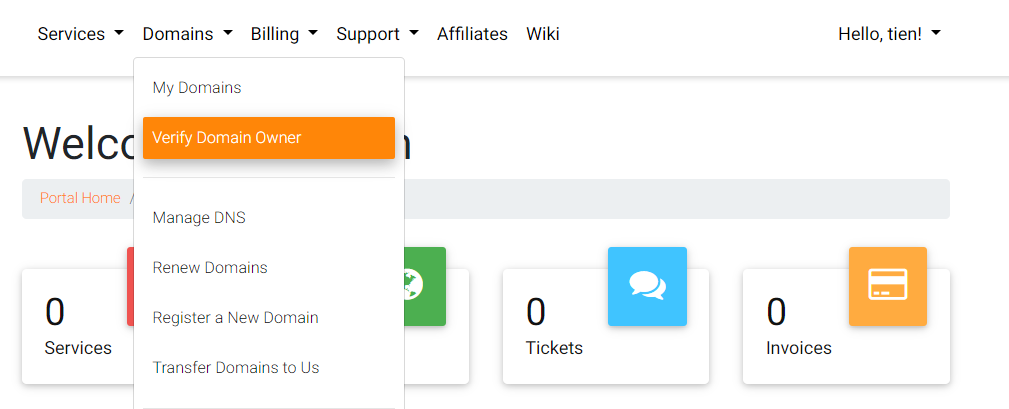
If you encounter any issues during this process, feel free to reach out to VinaHost’s customer support through the following methods:
- Email: support@vinahost.vn
- Hotline: 1900 6046
- Live Chat: https://livechat.vinahost.vn/chat.php
VinaHost will conduct the necessary verification and checks for your domain profile during standard administrative hours.
Read More: What is a Domain Registrar? | Function of a Domain Registrar
7. Tips for Choosing a .EU Domain
Here are some simple tips to help you choose the right and effective .EU domain name for your brand or project:
- Choose a short and memorable name: A short, easy-to-spell, and memorable domain name will make it easier for users to access. Avoid choosing a name that is too long or complicated.
- Relate to your brand: The domain name should clearly reflect the content or purpose of the website, making it easy for visitors to recognize your brand.
- Avoid numbers and hyphens: Numbers and hyphens can be confusing. Users may not know whether to type the number or write it down, and hyphens make the domain name harder to remember.
- Check for trademark issues: Make sure the domain name you choose does not infringe on any trademarks to avoid legal problems and keep your domain name unique.
- Use Keywords Wisely: Incorporating relevant keywords can improve SEO, but don’t overdo it, as it can make your domain name difficult to read and less clear.
- Secure Other Extensions: If possible, register other extensions like .COM or .NET along with .EU to avoid competitors using similar domain names.
- Easy to Pronounce: A domain name that is easy to pronounce will help users remember it longer, which is especially helpful for word-of-mouth marketing.
8. FAQs
8.1. Are there any restrictions on .EU domain content?
Yes, .EU domains do have some content restrictions. Websites using this domain must comply with EU laws and regulations, including data protection (under GDPR), copyright law, and ethical standards. Additionally, illegal activities such as inciting hatred, selling counterfeit goods, or any activity that violates EU law are prohibited.
8.2. What is the difference between a .EU domain and a .COM domain?
The differences between .EU and .COM domain names can be summarized as follows:
| .EU | .COM | |
| Geographical Scope | This domain name is reserved for businesses or individuals with links to the European Union, suitable for those targeting the European market. | This is a globally popular domain name, not tied to any geographical area and suitable for everyone in the world. |
| Availability | Since it is less popular, there is a higher chance that you will find your favorite domain name. | Many popular domain names have already been registered, reducing the chance of finding the right one. |
| Registration Requirements | Only individuals or businesses in the EU or the European Economic Area (EEA) are eligible to register. | There are no restrictions on where to register, anyone can own this domain name from anywhere in the world. |
| Awareness | Globally recognized, popular and widely used. | Focused on the European market, more local. |
8.3. Is it difficult to get a .EU domain?
It is not difficult, as long as you meet the conditions of residing or operating in the EU or EEA. Registrars like Eurid and other hosting services make the registration process easy.
Read More: What is a Domain Extension? | How to Choose a Domain Extension
9. Conclusion
With its legal, commercial, and reputational benefits, using a .eu domain name is a strategic choice for anyone looking to expand their operations in the European market. Registering a .eu domain name can be an important step in developing your brand and asserting your position globally. Please visit VinaHost’s blog HERE to follow more new articles. Or if you want to be consulted more about the service, you can contact us via:
- Email: support@vinahost.vn
- Hotline: 1900 6046
- Livechat: https://livechat.vinahost.vn/chat.php
Read More:
What is Domain Privacy? | Do you need Domain Privacy?
What is VN domain? | Overview of domain names .VN


 Tiếng Việt
Tiếng Việt English
English 简体中文
简体中文



















































































